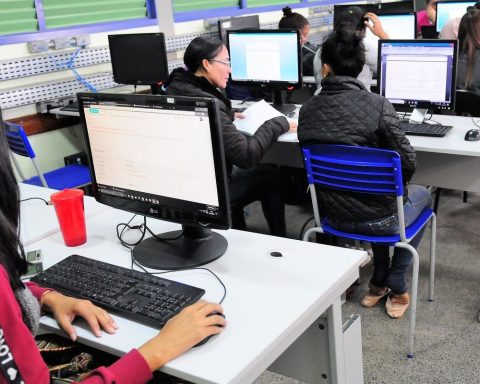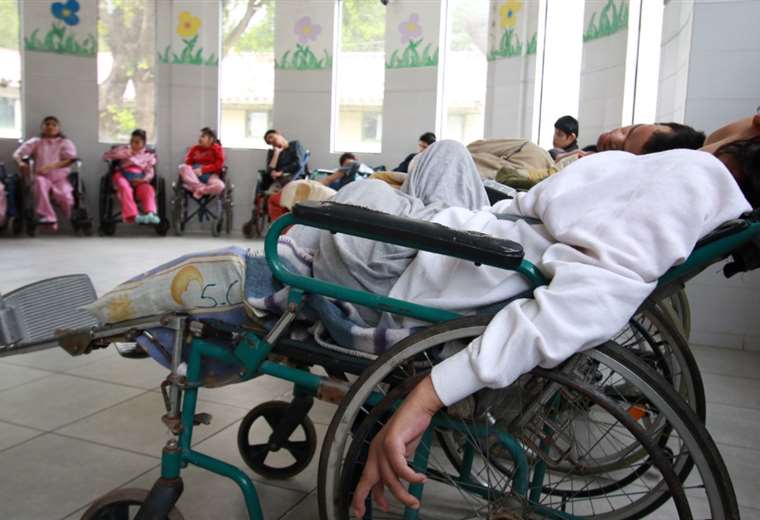It was like discovering art. But it wasn’t overnight that Ricardo Silva Carvalho, 41, from Maranhão, born in Sambaiba (MA) and living in Brasília for almost 20 years, learned how to make sushi. “It took me a year and the classes were at the restaurant where I worked”. he became chef.
During the pandemic, it started providing a service to supplement income: delivering Japanese food to people’s homes. He saved everything he could. It worked out so well that the dream would come true in 2023. “I opened my own fast food sushi with my wife this year.” The couple hired six employees.
According to survey of Brazilian Support Service for Small and Micro and Small Companies (Sebrae)based on data from the General Register of Employees and Unemployed (Caged), the story of Ricardo and Patrícia’s venture is far from being an isolated case. This type of company accounted for the creation of 85% of job vacancies generated in February.
In absolute numbers, there were 206,697 vacancies (85% of the 241,785 new jobs created).
For economist Roberto Piscitelli, a professor at the University of Brasília (UnB), the vacancies generated by small companies reduce the concentration of the economy. He explains that this type of business helps to capillarize economic circuits and tends to deconcentrate wealth.
“In addition, these opportunities tend to absorb a workforce that depends on less technology. That is why it is so important that incentive programs be offered to small and medium-sized companies”, considers the economist. These vacancies are also generated closer to people’s homes.
In the opinion of economics professor Juliana Bacelar, from Federal University of Rio Grande do Norte, the survey highlights the weight of small companies in job generation, which is better in services than in commerce.
According to Caged, the service branch was the one that hired the most: there were 135,238 jobs in February. Then comes the manufacturing industry, which accounted for 37,429 jobs; while the construction had 22.6 thousand new jobs generated. Trade had a negative balance (-1,344 new jobs).
“It’s no wonder that, when we talk about which segments are driving the economy, it’s the service sector because that’s where they are, in fact, more present and hire more. The sectors that are growing the most are food and education. I think it reflects a lot of the movement of economic dynamics. But trade is not taking off in terms of economic activity.”
recoil
Medium and large companies had a negative balance for the second consecutive month, with more layoffs than hiring. In the accumulated of 2023, of the 326,356 new jobs generated, 83% were in micro and small companies (MSEs).
For Sebrae, the data attest to the importance of small businesses for the national economy, which generates income and contributes to ensuring the citizenship of thousands of people and their families. “Talking about economic and social development is talking about micro and small companies”, pointed out the entity’s president, Décio Lima.
The data follow the history that was already proving to be promising last year, when, for every ten jobs created in Brazil, approximately eight were created by micro and small companies.
The accumulated result for the year surpassed 2 million new jobs, with almost 1.6 million jobs being in small businesses: around 78.4% of the total. In 2021, the participation of MSEs in the total balance was 77%. The average is higher in 2023 (83% of the total).
Investment
In the case of the sushi restaurant, the couple is optimistic. “It is going better than expected. We think that, in one year, we managed to have a return on our investment”, says the partner and wife, Patricia Souza Moreira, 44 years old. The couple estimates that they initially invested around R$50,000 in the business. They also have a food truck traveling with the same type of food. “We expect to be able to open a second restaurant by the end of the year”, says Patrícia Moreira.
The good news is also for their employees. O sushi man Luiz Carlos Pereira, 37, says that, during the pandemic, he was unemployed for a year. He has three kids. “I was living on odd jobs. Finally, I got a ‘fichado’ job (with registration in the work card) doing something I like. It’s gratifying”.
The rice, salmon, seaweed and fish he handles every day have gained a fresh start.

















